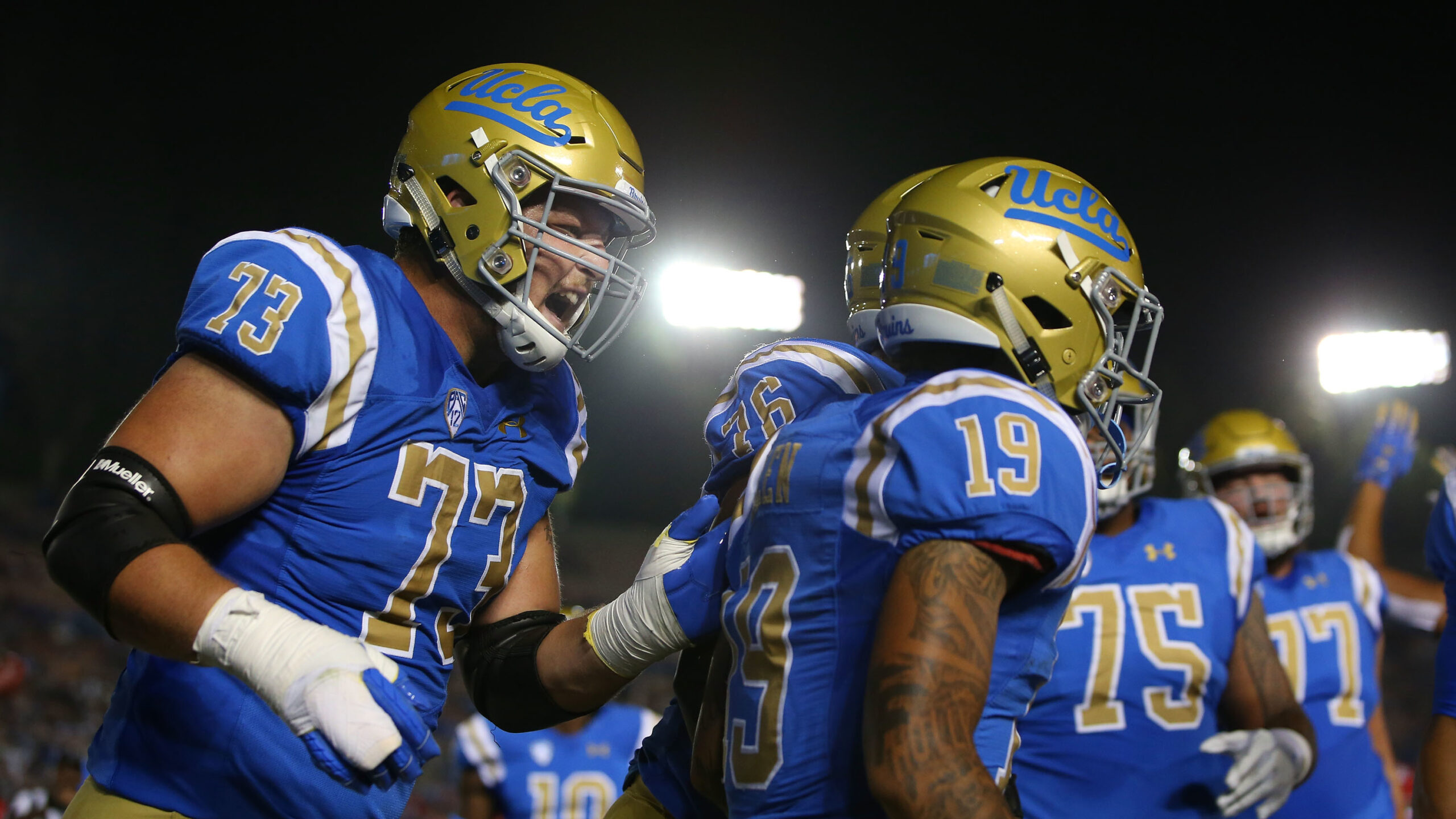California Governor Signs Bill Allowing College Athletes To Profit From Endorsements

UCLA players celebrate during a game against the Arizona Wildcats at the Rose Bowl last year Pasadena, Calif. California Gov. Gavin Newsom has signed a bill paving the way for college athletes in the state to hire agents and sign endorsement deals.
Victor Decolongon / Getty Images
In a move that puts California on a collision course with the NCAA, Gov. Gavin Newsom has signed a bill effectively allowing college athletes in the state to earn compensation for the use of their likeness, sign endorsement deals, and hire agents to represent them.
The governor signed the measure in a segment released Monday by Uninterrupted, a sports programming company co-founded by LeBron James.
Newsom proclaimed the move as “the beginning of a national movement — one that transcends geographic and partisan lines.”
“Collegiate student athletes put everything on the line — their physical health, future career prospects and years of their lives to compete. Colleges reap billions from these student athletes’ sacrifices and success but, in the same breath, block them from earning a single dollar,” he said in a statement. “That’s a bankrupt model — one that puts institutions ahead of the students they are supposed to serve. It needs to be disrupted.”
The bill that Newsom signed, known as SB-206, was passed overwhelmingly by California state lawmakers earlier this month. Under its terms, any four-year private or public university in the state that receives $10 million or more in annual revenue from media rights cannot prevent its athletes from receiving money or obtaining legal representation.
California is the first state to pass such a law, which is to take effect Jan. 1, 2023.
That marks a significant shift from the current policies enforced by the NCAA, collegiate sports’ national governing body. And the NCAA Board of Governors pushed back hard against the bill at the time of its passage in the Legislature, saying that it would leave the playing field for universities of different sizes radically uneven.
“If the bill becomes law and California’s 58 NCAA schools are compelled to allow an unrestricted name, image and likeness scheme, it would erase the critical distinction between college and professional athletics and, because it gives those schools an unfair recruiting advantage, would result in them eventually being unable to compete in NCAA competitions. These outcomes are untenable and would negatively impact more than 24,000 California student-athletes across three divisions,” the 22-member panel composed mostly of university presidents and athletic directorssaid in a letter to Newsom on Sept. 11.
“Right now, nearly half a million student-athletes in all 50 states compete under the same rules. This bill would remove that essential element of fairness and equal treatment that forms the bedrock of college sports.”
9(MDAxODM0MDY4MDEyMTY4NDA3MzI3YjkzMw004))








